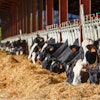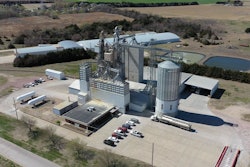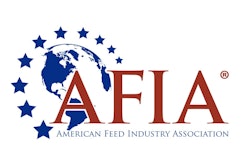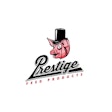
Ways to support the struggling feed and poultry sectors were explored at recent meetings in the West African state. For the feed industry, the focus was on improving sustainability, and the use of alternative raw materials.
The highlight of a recent event held in Abuja, Nigeria, last week was the distribution of animal feeds to attendees, reports the Federal Ministry of Agriculture and Rural Development (FMARD).
Held with development partners in the livestock sub-sector, the meeting aimed to encourage the use of alternative feed ingredients in Nigeria. As well as enhancing the animal feed supply in the West African state, the initiative aims to reduce production costs and boost the general economy. Among the attendees were farmers, feed millers and co-operative organizations.
Fitting with the current federal government’s agenda to leverage the nation’s agriculture for wealth creation, employment generation and economic diversification is the new Capacity Building Programme. This was outlined by a spokesperson for the Permanent Secretary at the ministry, Dr. Ernest Umakhihe.
Aims of the meeting were to offer know-how and possible solutions to a sector struggling to recover from COVID-19, widespread flooding and insecurity in the Nigerian feed industry.
To the Nigeria’s feed manufacturers, an FMARD representative offered support to improve production and processing methods. As well as raising incomes, the initiative aims to expand national feed output and boost food security.
In his speech, the head of the National Animal Production Research Institute urged those present to use the knowledge gained from the meeting to make livestock and poultry feed production more sustainable.
One of the participants at the event said the latest initiative will help address the challenges of feeding in animal production, reported 21st Century Chronicle.
Minister highlights potential for feed expansion
One month ago, Nigeria’s Minister of Agriculture and Rural Development, Mohammad Abubakar, was also calling for innovative technology to be used to increase national feed production in a sustainable way.
He was addressing the second National Animal Feed Summit, which was organized by FMARD and other partners, reported Premium Times of Nigeria.
Among the topics discussed were development of value in the feed chain, and policy documents of animal feeds, feed reserves, and the use of alternative ingredients.
Also at the summit were opportunities for the stakeholders present to discuss the many issues challenging the Nigerian feed industry, as well as exploring business opportunities.
For Secretary Umakhihe, new policies are needed to address the rising cost of feed ingredients, which impact the nutrition of humans and animals.
“Nigeria is very far from meeting national sufficiency in animal feed production,” he said.
National annual feed production averages 5.5 million metric tons (mmt), according to the official. Around 85% of the total is poultry feeds.
Currently, production represents less than 25% of the market size, he said. By including commercial ruminant and swine, the potential volume is 50 mmt per year, he said.
According to the News Agency of Nigeria, he said that the sector is constrained by the high cost of feed ingredients, market dislocation, and limited access to products.
Nigerian poultry sector faces collapse
High feed costs are among the factors that have led the nation’s poultry sector to the brink of collapse, reported Hallmark News last week.
This prompted a call from a local chapter of the Poultry Association of Nigeria (PAN) to the government to subsidize major farm inputs, particularly corn and soybean meal.
Previously, the sector had been healthy and growing, according to the report. As well as providing work directly and indirectly for more than 25 million people, it accounted for around one-quarter of Nigeria’s Gross Domestic Product from agriculture.
However, producers are now facing reduced demand for poultry meat and eggs, disrupted supply chains, rising veterinary drug prices, accelerating inflation, and a shortage of foreign exchange.
Exacerbating the situation was the redesign of the currency, which resulted in a shortage of cash. This hit the poultry sector especially hard as their produce did not find buyers.
According to another PAN official, farmers suffered monumental losses as a result. Chicken and eggs were oversupplied to the market, and had to be destroyed.
For the egg sector alone, estimated losses amounted to NGN30 billion (US$65 million). As a result, most farmers are now in debt to banks, suppliers, and other lenders.
Other challenges mentioned in the report are insecurity and lawlessness targeting farmers.
Last but not least, highly pathogenic avian influenza has become endemic in Nigeria.
Based on FMARD data cited by Hallmark, more than 300 farms were closed in the first four months of this year. Destroyed were 1.6 million birds in 28 states and the Federal Capital Territory. While few of these are expected to reopen, there are calls for the government to include vaccination in its HPAI control policy.
In September 2022, a new investment partnership was announced in Nigeria, aiming to improve feed production and storage in Nigeria.

















